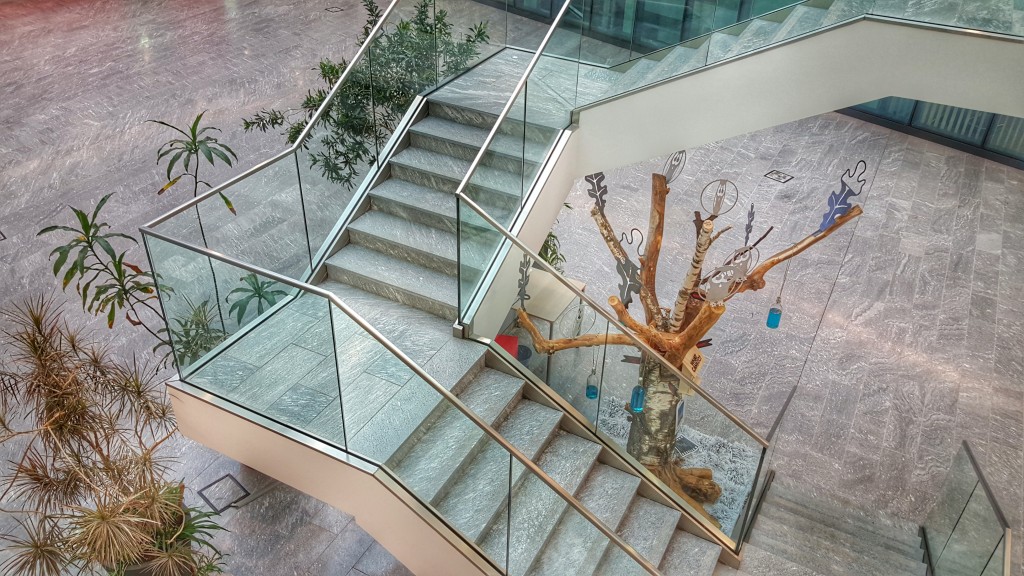With the growth of citizen science comes the challenge of coordinating people, projects and data. These challenges present a tremendous opportunity: with proper standardization, data can support multiple projects, allowing citizen science to address ever-grander issues and problems. On January 26-27, 2016, the European Commission’s Joint Research Center invited 20 international participants, including members of the ECSA, CSA and ACSA associations, to Ispra, Italy for a two-day workshop to discuss data and service infrastructures for citizen science.
JRC-Ispra, 26 – 27 January 2016
On 26 and 27 January 2016, the Joint Research Centre (JRC) of the European Commission invited international experts for a two-day workshop in Ispra (Italy) in order to discuss data and service infrastructures for Citizen Science. The participants were challenged to:
- discuss the relationships between existing databases including the SciStarter, the American Federal Database of Citizen Science and Crowdsourcing, the Atlas of Living Australia, and Citsci.org;
- identify the major requirements for Citizen Science project databases, including a new database to be hosted by the JRC;
- draft a reference model for analyzing and sharing citizen science tools and data, with early examples; and
- define a high-level roadmap with checkpoints for synchronizing already ongoing activities.
The event followed the Citizen Science Data and Service Infrastructures Workshop that the JRC co-organised together with the European Citizen Science Association (ECSA) at the end of October 2015 (more details here).
Tuesday, 26 January 2015
- Proposed Citizen Science reference model with examples, reflection and refinements – facilitated by Jaume Piera and Arne Berre
- Discussions on Citizen Science project repositories, incl. archive for EU-funded projects – scene setters by Anne Bowser on Citizen Science project repositories in CSA (demos of the repository of the Commons Lab, CitSci.org and SciStarter.org), Peter Brenton on infrastructures & tools to support Citizen Science in Australia (online demo) and Luigi Ceccaroni on knowledge representation in Citizen Science
- Discussions on Citizen Science project repositories (continued) – scene setters by Sven Schade on JRC Citizen Science Repository and Emmanouela Panteri on DCAN-based Citizen Science repository
Wednesday, 27 January 2016
- Examples of existing Citizen Science platforms – incl. scene setters by Russel Scarpino on CitSci.org platform and plans for future development, Chris Higgins on COBWEB technology platform and future development needs and Jorge Vidal on CAPTOR: Collective Awareness Platform for Tropospheric Ozone Pollution
- Discussing ambitions in interconnecting platforms, identifying major challenges – scene setter by Claudia Göbel to propose a stakeholder analysis of Citizen Science landscape
The meeting was highly informative and gave much room for the required debates between JRC scientists, representatives of European research projects (FP7 and Horizon2020), as well as lead figures from ECSA, the American Citizen Science Association (CSA), the Australian Citizen Science Association (ACSA), and the Open Geospatial Consortium (OGC).
Following this meeting – and with a checkpoint during the upcoming First ECSA Conference 2016: Citizen Science – Innovation in Open Science, Society and Policy (to be held 19-21 May 2016, in Berlin, Germany) – the participants agreed to take concrete steps to support both project and observational metadata standardization, and to increase collaborations. It was agreed:
For project metadata standardization
1. To continue mapping existing project metadata standards, including Darwin Core and the standards used to describe projects in different repositories, to develop a common vocabulary and ontology for talking about citizen science
2. To continue to support coordination between existing project repositories, through activities like developing Application Programming Interfaces (APIs) to share related information across repositories
3. To help coordinate a series of national repositories that are currently under development in Europe (included but not restricted to Germany, Austria, and Spain), through the activities listed above
For observational metadata standardization
4. To propose a high level reference model for citizen science observational data, based on existing models from the spatial data infrastructure (SDI), biodiversity and big data community, among others
5. To continue to support coordination between data hosting and management platforms through the development of APIs to share observational data, and demonstrating proof-of-concept data sharing
6. To prepare a discussion on data lifecycle management for citizen science, including an introduction to the topic and the possible projection of lifecycle models from other domains (e.g. Big Data and Spatial Data Infrastructures) onto observational data
For the collaboration at large
7. To conduct a stakeholder analysis on citizen science data and metadata standards in order to investigate current assumptions on requirements from both data providers, data users, and others
8. To continue to recruit stakeholders to join this initiative, like by requesting a citizen science Domain Working Group (DWG) within the Open Geospatial Consortium (OGC)
9. To develop a collaboration platform to coordinate activities, and publish and share resources
10. To investigate the legal, organizational, semantic, and technical aspects of interoperability, as well as interoperability related to political context
While taking only an observatory role on some of these activities, 1000001 Labs contributions will be primarily included in the work on the ontology – with a view to increase 1000001 Labs’ role in related information sharing and participatory creation of scientific evidence. Support to other activities will be provided where appropriate.
Contact Information
To coordinate with or contribute to the CSA working group, please contact Anne Bowser (Woodrow Wilson International Center for Scholars, anne.bowser@wilsoncenter.org).
To coordinate with or contribute to the ECSA working group, please contact Luigi Ceccaroni (1000001 Labs, luigi@1000001labs.org).
To coordinate or contribute to the ACSA working group, please contact Peter Brenton (Atlas of Living Australia, Peter.Brenton@csiro.au).
For information on the Ispra workshop, please contact: Sven Schade (Digital Earth and Reference Data Unit – JRC.H06, sven.schade@jrc.ec.europa.eu).
